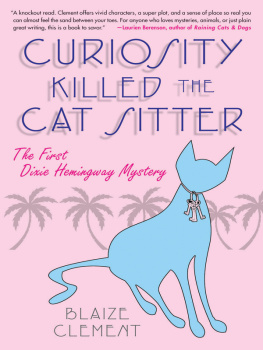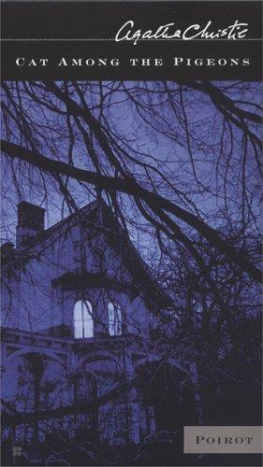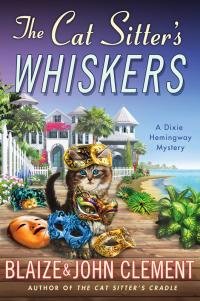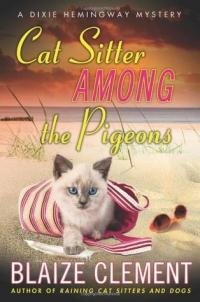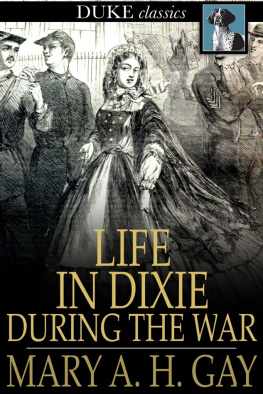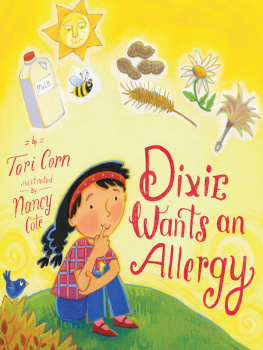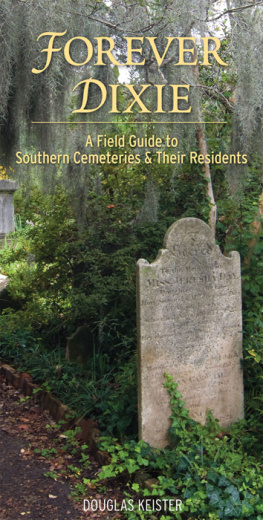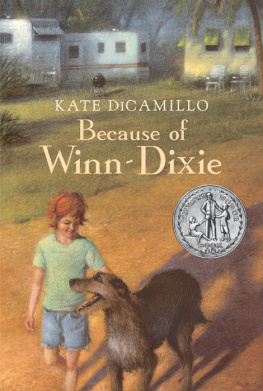The idea for this book was planted during a dinner conversation with Jason Jeremiah about drag racing. Thanks, Jason!
I owe a larger debt of gratitude to Pulitzer winner David Bradley, who taught me everything I know about the craft of writing. Ive written several million words since Davids MFA seminars at Temple University, but I still hear his voice in my head every time I write something that should be tossed out. Thanks, David.
I try to pass along everything I learned from David to the Thursday GroupGreg Jorgensen, Madeline Mora-Sumonte, Jane Phelan, and Linda Baileywho meet around my dining table every week. Im supposedly the workshop leader, but they teach me and enrich my work and my life in ways too numerous to count.
So does Marcia Markland, my patient and compassionate editor at Thomas Dunne. Thank you, Marcia! Many thanks, too, to the production department at St. Martins Press who carefully and respectfully transform my manuscripts into finished books, to the distribution reps who see that bookstores have the books, and to all the overworked and underpaid booksellers who loyally display, recommend, and promote Dixie Hemingway.
And a huge thank you to Al Zuckerman, the beragent at Writers House whose wit and wisdom always astonish me.
To my family, who have endured a terrible year with grace, humor, and courage, thank you for being you.
And to readers who send me their own stories, you kept me writing through a time of grief. Thank you for your support.
Contents
If you are alone you belong entirely to yourself.
If you are accompanied by even one companion
you belong only half to yourself.
Leonardo da Vinci
I read somewhere that if two quantum particles come into contact with each otherlike if they happen to bump shoulders in the dairy aisle of a subatomic supermarketthey will be forever joined in some mysterious way that nobody completely understands. No matter how far apart they travel, what happens to one will affect the other. Not only that, but they will retain some eerie form of ineffable communication, passing information back and forth over time and space.
Ruby and I were a bit like those weird particles. From the moment I opened the door and saw her standing there holding her baby, we had a strong connection that neither of us particularly wanted. It was just there, an inevitable force we couldnt resist.
I met Ruby the first morning I was at her grandfathers house. Her grandfather was Mr. Stern, a name which fit him remarkably well. Slim, silver-haired, and ramrod straight, Mr. Stern had ripped his bicep playing tennis. He was not the sort of man to make a fuss about a torn muscle, but his doctor had insisted that he rest his arm in a sling until it healed. Thats where I came in. Mr. Stern lived with a big orange American Shorthair named Cheddar, so he had asked me to help twice a day with cat-care things that required two hands. When he asked and I agreed, neither of us had known that Ruby was on her way with her baby. We hadnt known how much exquisite pain wed both suffer in the following days, either. Not muscle pain, but heartache.
Im Dixie Hemingway, no relation to you-know-who. Im a pet sitter on Siesta Key, a semitropical barrier island off Sarasota, Florida. Until almost four years ago, I was a sworn deputy with the Sarasota County Sheriffs Department. Carried a gun. Had awards for being a crack shot. Went to crime scenes with the easy self-confidence that comes with training and experience. Had faith. Faith that I could handle anything that came along because I was solid, I was tough, I had my act together, I was on top of things. When I looked at myself in the mirror, I had calm, fearless eyes. Then my world exploded into an infinity of sharp-edged fragments and Ive never had those fearless eyes again.
But on that Thursday morning in mid-September when I met Mr. Stern and Ruby for the first time, I had dragged myself out of a cold, dark pit of despair. I wasnt hollow anymore. I enjoyed life again. I had even thawed out enough to take the risk of loving again. I was actually happy. Maybe all that happiness was the reason I got careless and ended up in big trouble.
I usually make a preliminary visit to meet pet clients and provide their humans with written proof that I am both bonded and insured. The humans and I discuss my duties and fees, and we sign a contract. But since Mr. Stern had something of an emergency, my first trip to his house was also my first day on the job.
He lived on the north end of Siesta Key on one of the older streets where, during the mass hysteria that hit southwest Floridas real estate market, nice houses originally valued at two hundred thousand had sold as tear-downs to be replaced with multimillion-dollar colossals.
Mr. Sterns house was a modest one-level stucco painted a deep shade of cobalt blue. In most places in the world, a cobalt house would probably seem a bit much, but on Siesta Key, where houses nestle behind a thick growth of dark greens and reds and golds, it seemed just the way God intended houses to look. It sat too close to an ostentatious wealth-flaunting house on one side, with another overblown house on the other side that had a huge untended lawn. The lawn sported a bank foreclosure signa not-so-subtle reminder that the real estate boom was over and that the value of anything depends on human whim, not on any intrinsic worth.
Slim as a spike of sea oats, Mr. Stern had neatly combed thin gray hair, bushy eyebrows above fierce blue eyes, and a spine so straight he didnt need to tell me he was a military veteran. He told me anyway. He also told me that he was not the kind of man to waste his time on a cat, and that the only reason he had one was that his granddaughter had left her cat at his house and now he was stuck with it. He told me this while he gently cradled Cheddar, the cat, in the crook of his good arm.
American Shorthairs are uniquely American cats. Their ancestors came to this country along with the first settlers. They were excellent mousersthe Shorthairs, not the colonialsand they were noted for their beautiful faces and sweet dispositions. Something you cant say for sure about the first settlers.
Cheddar didnt seem the least bit offended by the way Mr. Stern talked about his disdain for cats. In fact, his lips seemed to stretch toward his ears in a secret smile, and he occasionally looked at me and blinked a few times, very slowly, sort of a cats way of saying, Between you and me, everything he says is hooey .
Having made it clear that he was a no-nonsense kind of man, Mr. Stern gave me a quick tour of the house. Lots of dark leather, dark wood, paintings in heavy gilt frames, photographs scattered here and there, a book-lined library that smelled faintly of mildewed paper and pipe tobacco. Except for a sunny bedroom with flower-printed wallpaper and a net-sided crib rolled into one corner, the house was what youd expect of a cultured gentleman who rarely had houseguests.
In the dining room, Mr. Stern opened a pair of french doors with a ta-da! gesture toward a large bricked courtyard. This is our favorite place.
I could see why. Stucco walls rose a good fifteen feet high, with flowering vines spilling down their faces. Butterflies and ruby-throated hummingbirds zoomed around coral honeysuckle, Carolina jasmine, flame vine, and trumpet vine. The perimeter was a thick tangle of sweet viburnum, orange jasmine, golden dewdrop, yellow elder, firebush, and bottlebrush. A rock-lined pond held center stage, three of its sides edged with asters, milkweed, goldenrod, lobelia, and verbena, while a smooth sheet of water slid over an artfully tumbled stack of black rocks at its back. Inside the pond, several orange fish the size of a mans forearm languidly swam among water lilies and green aquatic plants.
Cheddar twisted out of Mr. Sterns hold and leaped to the terrace floor, where he made a beeline to the edge of the pond and peered at the koi with the rapt intensity of a woman gazing at a sale rack of Jimmy Choos.
Next page

